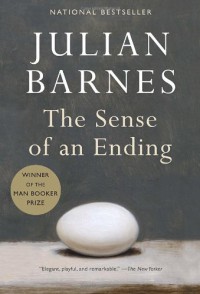So many books...so little time
I read to be quiet.
Man Who Knew Infinity
 2013 December 22nd was the 125th birth anniversary of Srinivasa Ramanujan. He was a genius whose early death, owing to a multitude of factors not entirely in his control, was a tragedy too profound for tears, as someone said.That mathematicians are trying to come to terms with his papers and notebooks to this day, is a testimony to his originality. There was a news about his last notebooks on mock modular forms being proven just last month.This biography by Robert Kanigel is a work of outstanding literary and scholarly accomplishment. The author clearly researched his subject thoroughly. He succeeds in successfully recreating the early 20th century rural Tamilnadu as well as Ramanujan's isolation in war time England for the readers. I was never good at Mathematics. And i never regretted it anytime until i read some of the mathematical parts in this book. I could understand the importance of Ramanujan's work, thanks to Kanigel's explanation. But i wished i was good enough at Mathematics to at least attempt to experience the beauty of it. Instead, i had to rely on metaphor for it to make any sense to me. A must read for anybody who is interested in Ramanujan, Mathematics, Hardy, Biographies or any good book.
2013 December 22nd was the 125th birth anniversary of Srinivasa Ramanujan. He was a genius whose early death, owing to a multitude of factors not entirely in his control, was a tragedy too profound for tears, as someone said.That mathematicians are trying to come to terms with his papers and notebooks to this day, is a testimony to his originality. There was a news about his last notebooks on mock modular forms being proven just last month.This biography by Robert Kanigel is a work of outstanding literary and scholarly accomplishment. The author clearly researched his subject thoroughly. He succeeds in successfully recreating the early 20th century rural Tamilnadu as well as Ramanujan's isolation in war time England for the readers. I was never good at Mathematics. And i never regretted it anytime until i read some of the mathematical parts in this book. I could understand the importance of Ramanujan's work, thanks to Kanigel's explanation. But i wished i was good enough at Mathematics to at least attempt to experience the beauty of it. Instead, i had to rely on metaphor for it to make any sense to me. A must read for anybody who is interested in Ramanujan, Mathematics, Hardy, Biographies or any good book.
Chowringhee
 It was pure chance that i had come across this book at an exhibition at work. The back cover was interesting, a Bengali novel written more than a half century ago, translated into English in 2007. I picked it up and it turned out to be a good decision in the end. Chowringhee is a first person account of an unemployed clerk turned Hotel receptionist. His position provides him with an opportunity to see different shades of human nature from a vantage point. He proceeds to narrate them each in a subplot within the main story.The best thing i liked in this translation was some excellent quotable quotes.Kudos to Sankar and Arunav Sinha!
It was pure chance that i had come across this book at an exhibition at work. The back cover was interesting, a Bengali novel written more than a half century ago, translated into English in 2007. I picked it up and it turned out to be a good decision in the end. Chowringhee is a first person account of an unemployed clerk turned Hotel receptionist. His position provides him with an opportunity to see different shades of human nature from a vantage point. He proceeds to narrate them each in a subplot within the main story.The best thing i liked in this translation was some excellent quotable quotes.Kudos to Sankar and Arunav Sinha!
The Secret of the Nagas (Shiva Trilogy 2)
 The highly anticipated sequel to the 'Immortals of Meluha' is written with much more authority on the subject and plot compared to the first part, however, there are still some chinks in the style of the author with respect to consistency of language and style as well as building up the suspense for the reader. That said, a much better second part which has to be rated better than the first one.
The highly anticipated sequel to the 'Immortals of Meluha' is written with much more authority on the subject and plot compared to the first part, however, there are still some chinks in the style of the author with respect to consistency of language and style as well as building up the suspense for the reader. That said, a much better second part which has to be rated better than the first one.
The Sense of an Ending [Deckle Edge] (Vintage International)
 Julian Barnes's genius lies in keeping this book short. Not a word more than needed to be written.He gets an extra 0.5 stars for that!Such a complicated narrative and he succeeds in keeping the reader engaged with the narrator despite them having been acquainted with his unreliability quite early in the pages.
Julian Barnes's genius lies in keeping this book short. Not a word more than needed to be written.He gets an extra 0.5 stars for that!Such a complicated narrative and he succeeds in keeping the reader engaged with the narrator despite them having been acquainted with his unreliability quite early in the pages.
The One-Straw Revolution: An Introduction to Natural Farming (New York Review Books Classics)
 Every once in a while, we chance upon a book that we finish it in one sitting, and wonder why we did not find it earlier. Every once in a while, we chance upon a book that makes us think "Exactly how does any one else not think like this?". A book that introduces a new paradigm.. a new dimension to our world view. The new paradigm may or may not be one with which we are comfortable.This outstanding book by Masanobu Fukuoka is one such. And the new paradigm it introduced to me is both comfortable and fills me with hope. It's even more remarkable Fukuoka did what he did in Japan, of all places, that in the sense that the Japanese are the sort of people who are likely to use the most modern methods anywhere possible, and are the sort who obsess with order and conformity! They even produced cuboid shaped water melons! Fukuoka has a message for them:).Consider this: Agriculture is thousands of years old. Diverting Riverine and Canal water for Agriculture is relatively recent phenomena. Now we are already experiencing irrigational challenges across the world in general and South Asia in particular. How are we going to manage?Fukuoka answers this question. But before that, he asks that question on our behalf. And many other questions. And he answers them. Well.Whether his exact methods are practicable elsewhere is obviously open for debate, but the direction he shows is one we, the human race, cannot afford to ignore. A must read from me.
Every once in a while, we chance upon a book that we finish it in one sitting, and wonder why we did not find it earlier. Every once in a while, we chance upon a book that makes us think "Exactly how does any one else not think like this?". A book that introduces a new paradigm.. a new dimension to our world view. The new paradigm may or may not be one with which we are comfortable.This outstanding book by Masanobu Fukuoka is one such. And the new paradigm it introduced to me is both comfortable and fills me with hope. It's even more remarkable Fukuoka did what he did in Japan, of all places, that in the sense that the Japanese are the sort of people who are likely to use the most modern methods anywhere possible, and are the sort who obsess with order and conformity! They even produced cuboid shaped water melons! Fukuoka has a message for them:).Consider this: Agriculture is thousands of years old. Diverting Riverine and Canal water for Agriculture is relatively recent phenomena. Now we are already experiencing irrigational challenges across the world in general and South Asia in particular. How are we going to manage?Fukuoka answers this question. But before that, he asks that question on our behalf. And many other questions. And he answers them. Well.Whether his exact methods are practicable elsewhere is obviously open for debate, but the direction he shows is one we, the human race, cannot afford to ignore. A must read from me.
Everybody Loves a Good Drought: Stories from India's Poorest Districts
 A must read for every civil servant, government official and politician.P. Sainath, readers of 'The Hindu; will know him for his satirical and hard hitting articles on agrarian crises and the policy paralysis that causes it, comes up with another anthology of real life storis that are at though provoking and insightful.
A must read for every civil servant, government official and politician.P. Sainath, readers of 'The Hindu; will know him for his satirical and hard hitting articles on agrarian crises and the policy paralysis that causes it, comes up with another anthology of real life storis that are at though provoking and insightful.















